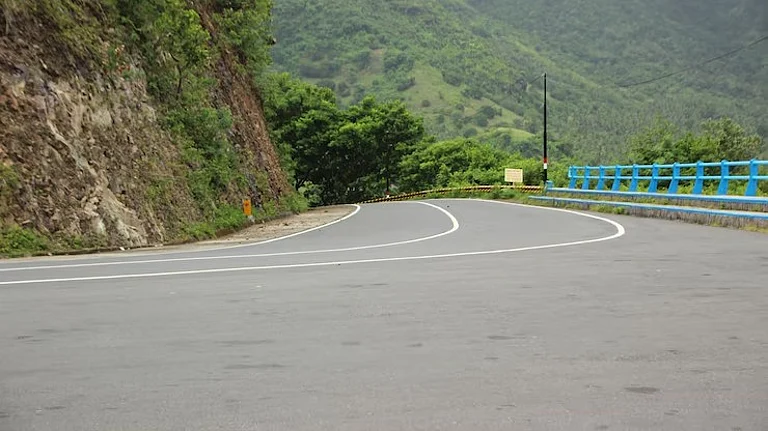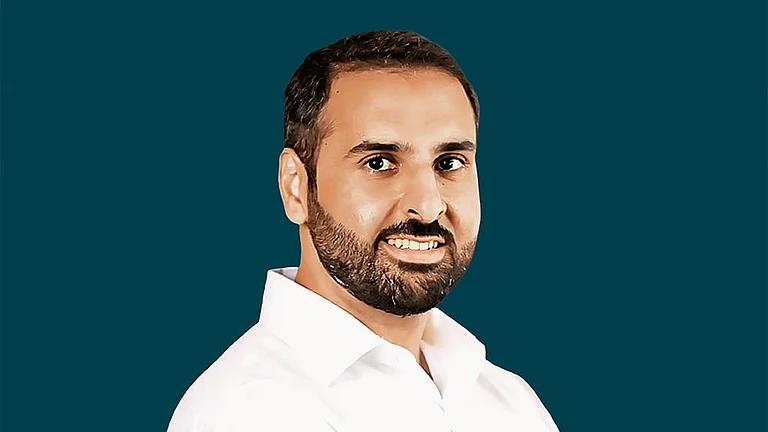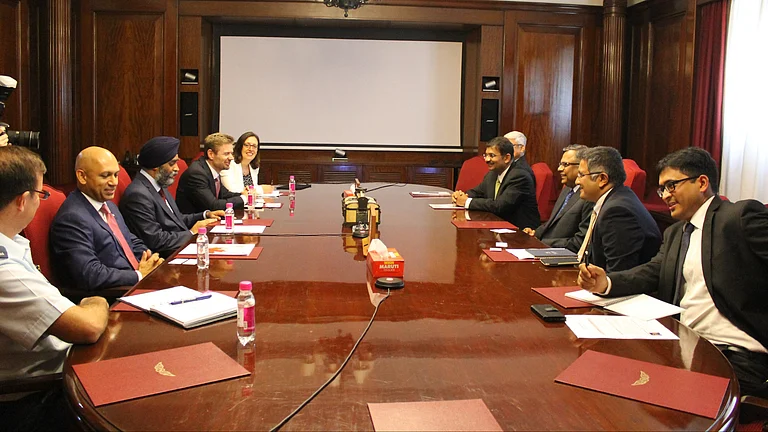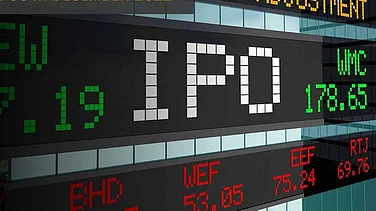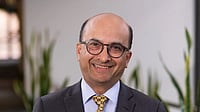
Less than 3 years after joining the Sir Ratan Tata Trust and Sir Dorabji Tata Trust, Mehli Mistry has been voted out after a fallout with Noel Tata.
Mistry, a director at M Pallonji & Company and once a close associate of Ratan Tata, was removed after trustees opposed his reappointment.
His exit marks another chapter in the long-running Tata–Mistry tensions.
Less than three years after being inducted as a trustee of the Sir Ratan Tata Trust (SRTT) and the Sir Dorabji Tata Trust (SDTT), the two most influential arms of the Tata Trusts, Mehli Kersasp Mistry has stepped down. His resignation comes just days after he was voted out following a reported fallout with the current chair of the Trusts, Noel Tata.
In a letter dated November 4, Mistry announced his resignation from three key trusts, the Sir Ratan Tata Trust, the Sir Dorabji Tata Trust, and the Bai Hirabai J.N. Tata Navsari Charitable Institution Trust.
Mistry, a director at M. Pallonji & Company, was once regarded as a close associate of the late Ratan Tata.
In his resignation letter, he invoked his “mentor”, stating that he had "been guided by Ratan N. Tata’s vision of ethical governance, quiet philanthropy, and utmost integrity."
His exit comes amid speculation that it marks another flashpoint in the long and complex relationship between the Tatas and the Mistrys. Some reports suggested that the rift between Mehli Mistry and Noel Tata could lead to another legal battle for the conglomerate, similar to the one that followed the ouster of Cyrus Mistry, Mehli’s estranged cousin, in 2016.
In that case, Ratan Tata faced criticism for the decision to remove Cyrus Mistry as chairman of Tata Sons, and Mehli Mistry was seen as firmly aligned with Tata. His close association came under scrutiny during subsequent legal proceedings, which referred to business dealings between M Pallonji & Company and various Tata group entities. However, there was no finding of wrongdoing in relation to those transactions.
This time, however, Mehli Mistry and the Tata Group are on opposing sides. It did not help that Mistry had reportedly filed a caveat with the Maharashtra Charity Commissioner to ensure that no changes were made to the Trusts’ membership without first granting him a hearing.
What Were Mistry’s Options?
According to legal experts that Outlook Business spoke with, Mistry has the option to challenge his removal from the group, but its success would depend on a few conditions.
"Mehli Mistry may, in theory, challenge his removal before the charity commissioner or the civil courts under the Maharashtra (Bombay) Public Trusts Act, 1950 (MPT Act), which governs both the Sir Dorabji Tata Trust and the Sir Ratan Tata Trust," says Tushar Kumar, advocate, Supreme Court of India.
But his challenge, says Kumar, would face formidable legal resistance as "trust deeds of these institutions expressly confer validity upon a decision taken by the majority of trustees present."
"Unless he [Mehli Mistry] can demonstrate that the majority acted mala fide, in breach of the deed, or without due process, a court is unlikely to intervene in what remains an intra-trust administrative act squarely within the powers conferred by the founding instrument," he adds.
Shankey Agrawal, partner at BMR Legal agrees. According to him, whether Mistry can successfully challenge his removal will ultimately depend on the terms of the trust deed and how it regulates reappointments of trustees.
“If the deed expressly requires unanimous consent for renewal, then the decision of the Board may not stand legal scrutiny. However, if no such requirement of unanimous consent is written into the deed, then a majority vote would be valid under ordinary trust law principles,” he says.
The Tata Trusts, including the SDTT founded in 1932 and the SRTT founded in 1919, are public charitable trusts registered under the MPT Act, which is the principal legislation governing their administration and oversight by the charity commissioner, Maharashtra.
According to B Shravanth Shanker, advocate-on-record, Supreme Court, their internal governance continues to be regulated by their respective trust deeds, which are irrevocable instruments executed in 1932, prescribing objects, trustee powers, quorum and a majority-decision rule stating that “the decision of a majority of the trustees present at a meeting shall bind the minority.”
"These deeds are binding constitutional documents," Shanker says and adds that Mistry’s conditional approval of Venu Srinivasan’s lifetime reappointment, contingent on unanimity being maintained for all future trustee renewals, carries no legal force and cannot bind other trustees.
"Under Section 7 of the Indian Contract Act, acceptance must be absolute and unqualified; a conditional approval is a counter-proposal that never ripens into a binding agreement unless accepted, which did not occur here," he says and explains that trustees exercise fiduciary powers and cannot impose future voting obligations on co-trustees.
"Once Srinivasan’s reappointment was validly passed, Mistry could not retroactively withdraw his vote, as collective resolutions attain finality upon adoption," says the Supreme Court lawyer. Mistry’s pre-condition, he adds, is rooted partly in personal interest and therefore lacks contractual validity, fiduciary legitimacy and statutory support; “at best, it reflects a moral expectation of unanimity.”
Alay Razvi, managing partner at Accord Juris, agrees with Shanker. He adds that courts usually defer to Trusts’ internal decisions unless bad faith or clear illegality is demonstrated.
"Mistry would need to prove that the vote or meeting violated the trust deed’s removal procedure or the MPTA’s safeguards on fair governance," says Razvi. Without concrete evidence of procedural lapse or malice, his challenge would face steep legal hurdles despite its symbolic significance.

How Did Mistry Lose the Trustees’ Trust?
While the legal debate unfolds, developments within the Trusts have drawn attention to how quickly the internal balance of power appears to be shifting.
On October 28, Mehli Mistry's tenure at the SRTT and the SDTT expired. A proposal to renew his trusteeship at both Trusts was moved by the Trusts chief executive Siddharth Sharma. Approval would have meant he become a lifetime member and face only yearly review after the age of 75. But the majority of trustees, led by Noel Tata, voted against Mistry's reappointment.
SDTT trustees include Noel Tata, Venu Srinivasan, Vijay Singh, Mehli Mistry, Pramit Jhaveri and Darius Khambata. At SRTT, the trustees are Noel Tata, Venu Srinivasan, Vijay Singh, Jimmy Tata, Jehangir HC Jehangir, Mehli Mistry and Darius Khambata. Mistry could not vote on the renewal of his term.
At both Trusts, Noel Tata, Venu Srinivasan and Vijay Singh voted against the resolution and formed a majority quorum. At SRTT, Jimmy Tata didn't participate, which made these three trustees the majority.
Khambata, Jhaveri and HC Jehangir’s support could not help Mistry, as they were in the minority in each Trust. The decision was reported across news outlets citing sources.
No public confirmation has been made regarding the renewal of Mistry's term or his removal from the Trusts, and he is still listed as a trustee at four of the Tata Trusts, including the Tata Education and Development Trust and Bai Hirabai Jamsetji Tata Navsari Charitable Institution.
These trusts collectively own over 65% of Tata Sons, the holding company of the salt-to-software conglomerate. While working for various charitable causes, they also take key decisions for Tata Sons, its companies and board via three nominee directors.
Behind Mistry’s Fallout
The background to the division lies in the series of events that unfolded earlier this year. In September 2025 the reappointment of Vijay Singh—one of the Trusts’ nominee directors on the Tata Sons board—had divided the trustees. Singh later resigned from the board. The move exposed two factions of the body, one led by Noel Tata with the support of Singh, former diplomat and TVS Group’s emeritus chairman Venu Srinivasan. On the other side was the Mistry-led faction of the Trusts, which included chairman of the Jehangir Hospital Jehangir HC Jehangir, senior advocate Darius Khambata and former Citigroup banker Pramit Jhaveri.
The latter group had alleged a lack of transparency from the current nominee directors on the Tata Sons board and tried to appoint Mehli Mistry in place of Singh.
What followed was a period of uncertainty for the charitable body that ultimately led to the government’s intervention.
While that fight subsided for the time being in early October, questions over the two trustees’ reappointments exposed more rifts. Venu Srinivasan and Mehli Mistry were due for their term renewals in the Trusts this month. In Srinivasan's case, all trustees unanimously voted yes, but Mistry added a caveat to his approval.
In his approval letter, he conditioned that "should any trustee elect not to pass this resolution reappointing Mr Venu Srinivasan or an identical unanimous resolution for all other trustees as and when their respective tenures expire, then in such event, I do not provide my formal approval for the reappointment of Mr Venu Srinivasan in terms of Circular No: 87 dated 18 October 2025. Needless to state, I do not expect such a situation to arise."
Unfortunately for Mistry, his condition didn’t persuade the Tata-led trustees to vote in his favour.
Following the demise of Tata Trusts’ long-time chairman Ratan Tata, the Trusts had approved a resolution allowing current trustees to be reappointed without any limit on tenure, effectively granting lifetime membership. It was meant to provide stability to the board at the “moment of transition between two eras.” However, it is unclear if the resolution also asked for unanimity for the reappointment.
On October 17, 2024, Noel Tata was appointed chair of the Trusts and given lifetime membership. For now, only he and Srinivasan have lifetime trusteeship at Tata Trusts.
Mehli Mistry was brought into the Tata Trusts in 2022, at a time when Ratan Tata was planning his succession. He has had a long association with the group and the family. His M Pallonji Group, which has interests in shipping, dredging and auto dealerships, counts many Tata companies as its associates. At the time, he had said that he would "secure Ratan Tata's interests in the group at all times" and do "whatever he wants me to do."
For now, Mistry’s exit adds to the changes underway within the Tata Trusts as they navigate a new leadership structure after Ratan Tata’s death. Now, Mistry's resignation underscores how the Trusts’ balance of power is continuing to evolve.











